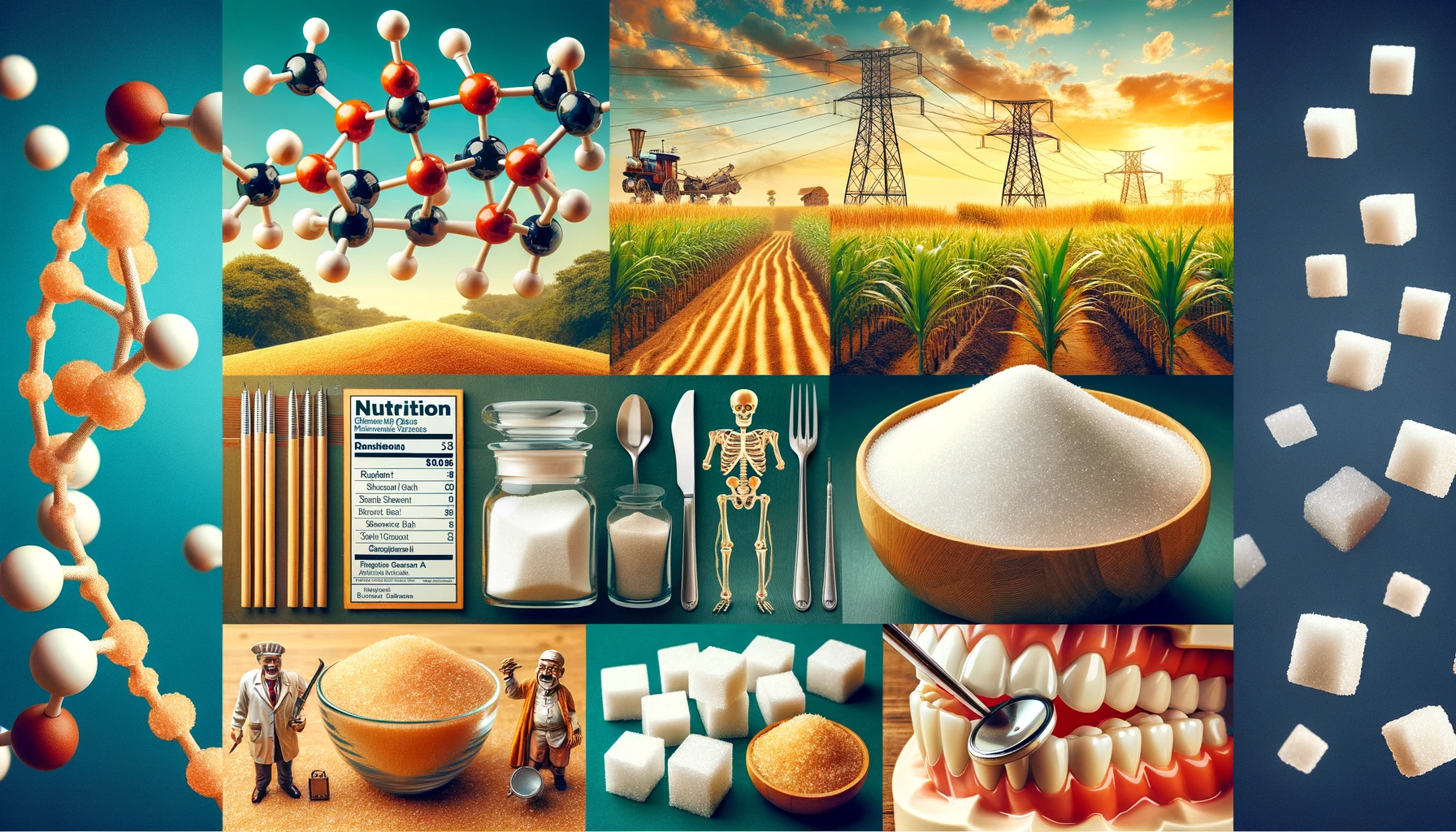Introduction
In recent years, sugar has become one of the most vilified substances in the modern diet. From claims that it’s as addictive as cocaine to accusations that it’s the root cause of various health problems, sugar myths have proliferated. In this article, we’ll dive deep into the world of sugar, debunking common misconceptions and separating facts from ingredients.
What is Sugar?
Before we start busting myths, let’s clarify what sugar actually is. Sugar, in the context of our discussion, refers to sucrose, a natural carbohydrate found in various plants, particularly sugar cane and sugar beet. Sucrose consists of two simple sugars, glucose and fructose, bonded together. It’s a common sweetener used in a wide range of food and beverage products.
Myth 1: Sugar is as Addictive as Cocaine
The Reality:
This is perhaps one of the most sensationalized sugar myths. While sugar does stimulate the brain’s reward centers, comparing it to highly addictive drugs like cocaine is an oversimplification. Sugar’s effects on the brain are not the same as those of drugs, and it does not produce the same level of dependency.
Research has shown that overconsumption of sugar can lead to cravings, but addiction involves complex psychological and physiological processes that sugar alone does not trigger.
Myth 2: All Sugars Are Created Equal
The Reality:
Not all sugars are the same, and it’s essential to distinguish between various types of sugars. The two primary types are:
1. Natural Sugars:
- Fructose: Found naturally in fruits, honey, and root vegetables.
- Lactose: Present in milk and dairy products.
2. Added Sugars:
- Sucrose: Added to processed foods and beverages.
- High-Fructose Corn Syrup (HFCS): A common sweetener in sugary drinks and processed foods.
The health impact of sugar varies depending on its source. Natural sugars come with additional nutrients, while added sugars offer empty calories with minimal nutritional value.
Myth 3: Sugar is the Sole Culprit Behind Obesity
The Reality:
While excessive sugar consumption can contribute to weight gain, it’s essential to understand that obesity is a complex issue influenced by various factors, including genetics, lifestyle, and overall diet. Blaming sugar alone oversimplifies the problem.
A balanced diet, regular physical activity, and an understanding of portion control are crucial for maintaining a healthy weight. Reducing sugar intake is just one part of the equation.
Myth 4: Sugar Causes Diabetes
The Reality:
Sugar itself does not directly cause diabetes. Type 1 diabetes is an autoimmune condition, while Type 2 diabetes is primarily linked to lifestyle factors like poor diet, lack of exercise, and genetics.
However, excessive consumption of sugary foods and beverages can contribute to the development of Type 2 diabetes by leading to obesity and insulin resistance. It’s essential to manage sugar intake as part of an overall strategy for diabetes prevention and management.
Myth 5: All Sugar Substitutes are Safe
The Reality:
Artificial sweeteners and sugar substitutes are marketed as healthier alternatives to sugar. While they can be suitable options for people with diabetes or those looking to reduce calorie intake, their safety remains a subject of ongoing research.
Some individuals may experience adverse reactions to certain sugar substitutes, and long-term health effects are still not fully understood. Moderation and informed choices are essential when using sugar substitutes.
Conclusion
In the world of nutrition, myths and misconceptions often abound, and sugar is no exception. While it’s crucial to be mindful of sugar intake and its potential health impacts, it’s equally important to base our understanding on scientific evidence rather than sensationalized claims.
Remember that a balanced diet, regular exercise, and informed choices are the keys to maintaining good health. So, don’t be misled by sugar myths; instead, make informed decisions about your dietary choices and enjoy the sweet things in life in moderation.
